Podcast transcript: Are foldable phones more than a fad?
Read the full transcript for this episode of the IT Pro Podcast
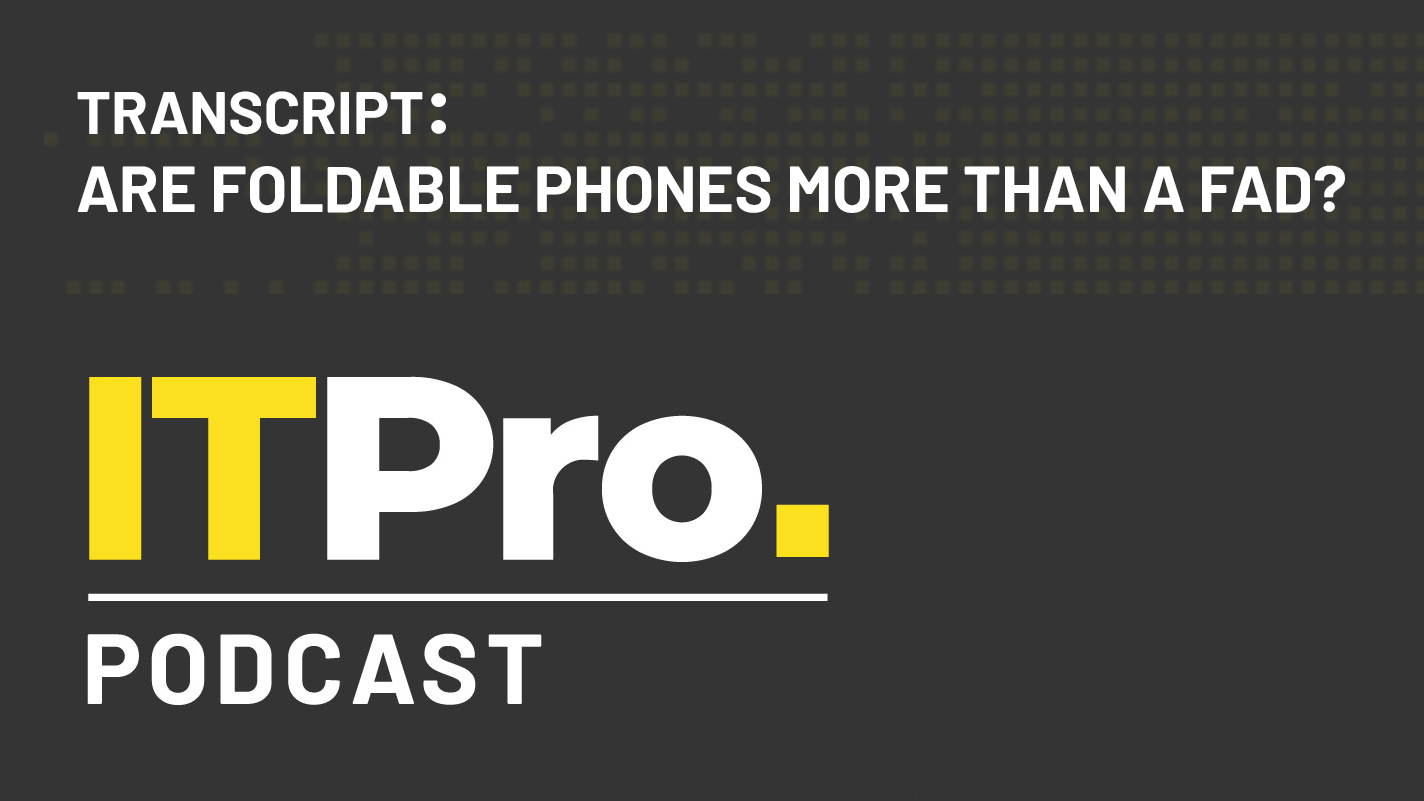
This automatically-generated transcript is taken from the IT Pro Podcast episode ‘Are foldable phones more than a fad?’. To listen to the full episode, click here. We apologise for any errors.
Jane McCallion
Hi, I'm Jane McCallion.
Adam Shepherd
And I'm Adam Shepherd.
Jane
And you're listening to the IT Pro Podcast where this week we are flipping out over phones.
Adam
Most of our listeners will remember a time before every phone was a flat uniform slab of glass. The form factor of top phones hasn't changed much over the last five years. But the recent trend for foldable smartphones has reintroduced a bit of variety into the mobile market.
Jane
But while these new devices may be a bit more unique than our now traditional rectangular design, is this new wave of foldables an actual evolution of the technology or merely a passing fad that will be swiftly forgotten?
Adam
So before we get started with this, I think it's worth recapping a brief history of foldable devices because foldable devices aren't exactly new, per se.
Sign up today and you will receive a free copy of our Future Focus 2025 report - the leading guidance on AI, cybersecurity and other IT challenges as per 700+ senior executives
Jane
No, no. And when the new generation of foldables came out, I was very much sort of like, oh, so we're doing this again then, are we? Cool. Okay, fine. And yeah, I mean, foldables, they date back to the days of sort of PDAs, really - personal digital assistants, if you're not au fait with the acronym. One of the earliest ones was the Psion series five, which came out in 1997. So like I say, it's, it's not a new idea. And that was had a little screen, your typical sort of grayscale type screen and integrated a physical QWERTY keyboard. And another contemporary of the Psion was the Nokia 9000 Communicator. It came out in 96. And once again, kind of physical keyboard, a much smaller screen, but something that's more recognisably a phone. When it's closed, it looks like an extremely chunky phone. But it was the 90s so everything was a bit brickish. Not quite one that you need to carry a suitcase sized battery around with but still sizable.
Adam
The big difference between kind of newer foldables and the older generation of devices is that the older generation were based around having a QWERTY keyboard, as opposed to the older T9 style of button layout. And that meant that you could get a lot more done in comparison, you know, it was easier to do things like making notes or typing emails, and you know, all of these kinds of productivity tasks in inverted commas that a traditional mobile phone just wasn't really suited for, you know, even when smarter phones started becoming a thing, you know, phones where you could do things like reply to emails, and check your stocks and all of these kinds of kinds of things, there was still a bit of a trend for, you know, mobile phones to have access to a QWERTY keyboard, whether through, you know, a little plug in accessory or through a kind of clever fold out mechanism where you could have access to a QWERTY keyboard. BlackBerrys for example, the the kind of first BlackBerry devices, that was a big selling point of them.
Jane
Well not even just the first ones like going up until sort of the 2010s. They were still people - I'm going to slightly age myself here, but, you know, when I left my first job, it was only the MD who had a blackberry and do price that was very kind of like high status. And then I went back into education a few years later, and suddenly all these people who, you know, kind of a good five years younger than me, who've all got the BlackBerrys. Clearly, in these few years, I slipped through some alternate dimension in which young people now want QWERTY keyboards as well, allegedly, although obviously it turned out to be slightly different to that. But yeah, I think that these older foldable devices are more like kind of mini computers. And I kind of appreciate that actually, what we have now as smartphones, despite the word phone on the end of it is very much a tiny computer with a software based keypad. But yet they they are little, almost like little laptops really, to look at them, like little proto-laptops.
Adam
Yeah, and with that in mind, modern foldable devices are very much kind of following that trend. So the likes of the Galaxy Z Fold 3, which has recently been launched by Samsung, the Huawei Mate X2 and the Surface Duo from Microsoft, have all been following that trend of essentially trying to merge a traditional phone and a traditional laptop. And while older foldable devices were reliant on QWERTY keypads, these combine essentially two touchscreens to recreate the same functionality.
Jane
Yeah, they use the sort of software keypad that we're used to from smartphones now. And I think that the idea is that you would be typing on them with your thumbs in the similar way that you do on a smartphone rather than kind of laying them out to type out, whatever.
Adam
Well, you say that, that is one of the use cases that I've seen, you know, if you are, like, for example, on a train, and you want to rattle off a couple of long emails in a manner that's a bit speedier than doing it with your thumbs, which, you know, can be a bit time intensive and, and prone to mistakes, you can set it down on a table, you know, with the with the screen propped up as, as you would a laptop and just rattle away. With a full proper QWERTY keyboard,
Jane
You see, you can tell from this discussion, but I'm not involved in the review side of things. I look at it and go, well, obviously, you wouldn't want to type on that. That's, that's quite kind of interesting. I think it also shows I have long nails, so like you couldn't possibly type on that.
Adam
Of course, it does depend on you know, things like how big your fingers are.
Jane
Yeah, which in fairness, I have quite small hands, as we have discussed previously on this podcast, whenever the topic of phones comes up.
Adam
So part of the raison d'etre for these devices is that they're merging the old kind of PDA functionality with the more modern kind of digital smartphone app experience, you know, so you can have both in the same device.
Jane
Yeah, and it does seem to me that these devices are bringing a bit more to the table than the previous PDAs, whereas they were tiny laptops, these ones do seem to, they do a bit more, it's not just, here's something that you can write an email on, and maybe make some calls. You can, for example, I've seen with the Surface Duo, when it's in sort of portrait orientation, if you like, that you could, for example, have a reference text on one side and a note taking thing where you can take notes with a stylus or your finger or whatever, on the other screen. So that's quite useful, quite kind of almost like the split screen function that you have on desktops and laptops, which which I am a frequent user, I'm a big fan, big fan. So I can see how that'd be like, super useful, actually.
Adam
And one of the big things for modern foldables is that for most of the time, they can just act as you know, a normal standard form factor smartphone with the standard, you know, roughly 16:9 screen. And you know, you can use all of your apps and whatnot in the way that you normally would. But when you need a little bit more real estate, if you're, for example, watching a video or taking notes, or whatever it is that you need a little bit more elbow room for, you can fold it out, and bang, you've got more more space to work with straight off the bat rather than having to hop between devices, you know, because at the moment, I can do, let's say 90% of what I need to do on a daily basis on my smartphone, you know, push comes to shove, I can do the vast majority of my work and my you know, day to day technology needs, they can be met with a standard smartphone, sometimes I need a little bit more room to work with. And for those situations, I will have to go back to you know, a desktop or a laptop or a large form factor tablet, something with a bit more room. The idea of these, or part of the idea of these is that you can fold them out and you have that extra room without having to switch devices.
Jane
Yeah, and you're kind of personally thinking about it. I also use my smartphone for not for a lot of things like even if I am working on my desktop, I'm dual-screening with my phone half the time as well. But if I for example, want to be on a mobile device, and I want to look at Pinterest, which works better in a mobile form factor anyway, I then have to hunt around my house for my iPad Mini because my phone is too just too small. While I appreciate they're not as big as the screen for the iPad Mini. There are an awful lot bigger than the iPhone 7 that I have for example, which isn't great for looking at Stuff that just needs a bit more space. Yeah, I don't want a massive phone.
Adam
So these devices then are very much geared around productivity, we've covered a lot of the things that they can do in terms of note taking and videos and multi app multitasking. There are many apps, for example, that are now being built around a dual screen or a foldable setup. So Outlook, for example, on the Microsoft Surface Duo is built specifically or has been optimised for the dual screen form factor. So you'll have your inbox on one side of the device, and then the actual, you know, email view on the other side, which makes for much easier inbox management, you know, you get a much more desktop style inbox on your phone.
Jane
That's what I was about to say, Yeah, kind of very similar to what you would have with either mail client, or, you know, webmail.
So I think we've spoken a lot about the 'what' of these foldables. But it's probably worth our while looking at the 'why' as well, because so much technology innovation, you've got to sit there and think why?
Adam
Well, this is the kind of form factor that it's easy to look at and go, Well, there's no point to this. This is just innovation, quote, unquote, for for its own sake, you know, it's just a fad. There's no real need for it. You know, that's certainly the initial reaction that I had when I first saw the kind of newer generation of foldable devices because of course, the big innovation that has enabled these devices is foldable touchscreens. So the Samsung foldables, and the Huawei foldables, among other manufacturers, have been built around flexible, flexible screen panels, which is a relatively new invention. The Surface Duo, we should note, is built slightly differently. So that's built over two separate panels with a connecting hinge. But most of them are built around a flexible screen. And that seems initially, like it's just a solution looking for a problem. But that might not be the case.
Jane
So it's not just that they invented this foldable polymer, I think it is, or whatever it is they've got on them. And when let's find a way to market this, it does have a genuine use case in your opinion.
Adam
Yeah, I think there's a lot of applications that this can be put to. So the the form factor, it does bring with it a number of functionality benefits. But it's important to recognise the the need that's driven this. You know, as I alluded to earlier, there are some tasks, which smartphones as good as they are just aren't equipped to deal with, you know, if anyone's tried looking at a spreadsheet, for example, on a standard smartphone. Yeah, exactly. It's, it's far from comfortable.
Jane
Yeah, yeah. Looking at it as one thing, have you ever tried to edit or input to a spreadsheet?
Adam
Oh god, it's just not worth it. But that's exactly the kind of thing where, you know, if you could grab the corners of your phone and stretch it by about, you know, four or five inches, it would suddenly be a lot more comfortable to use. And this is exactly the kind of use case that foldables have been designed for.
Jane
It would also suddenly be a laptop.
Adam
Well, yeah, but that's kind of the point, right?
Jane
True, true. And I guess the idea is also that say if you are a business person who is on the road a lot or something like that, that you don't have to cart around a laptop, in addition to your smartphone, you can have this one device that is both a smartphone and a laptop, in one.
Adam
All things to all people. So who are these devices for then? You know, we've spoken about a lot of the applications already. But most of these devices have been targeted at business people, you know, working professionals, power users, the Samsung Galaxy Z Fold 3, for example, has been kind of pretty clearly pushed towards the niche that the old Note range previously occupied. You know it has support for Samsung's S Pen stylus. It's clearly being marketed as the the evolution of that particular, you know, power user niche.
Jane
Can I just say that I am very disappointed that the Z Fold 3 doesn't actually fold up like a Z. I feel like, I feel like everybody's being conned. But yeah, you know that there is a reason why it is targeted towards, like you say, business people, I'd say even more so than power users. Because if you're out just like in everyday situations, you just use your phone for browsing the internet, you know, looking at a few apps, whatever, you're not going to need this. And you're not going to fork the extra money that is involved in getting one. But if you are a salesperson who is out and about a lot, traditionally, then this may be very useful to you or somebody who just needs to be connected on the go on a regular basis, I can see it being really quite useful for for people who are in that kind of working situation who don't really want to have to cart loads of stuff around with them because they're on the move, but may have to.
Adam
Yeah, but they aren't without their problems. You mentioned a second ago, the additional expense. And yeah, they are not cheap at all. The Samsung Galaxy Z Fold 3, for example, retails from just under £1600, £1599. And that's the starting price.
Jane
That's so much money, I realised that I've just said that about five times. But that's a lot of money, a lot of money. A lot of money to drop on a phone.
Adam
Yeah, but that's actually more expensive than most laptops, even. The average mid range to high end laptop will run you between, let's say £800 and £1200, the average high end smartphone will cost about £600 to £800. So even if you completely replaced both your existing smartphone and your existing laptop with one of these devices, you're still only saving a couple of hundred pounds, really.
Jane
If that.
Adam
If that. And realistically, as good as foldables are, they're not going to replace laptops anytime soon, you know, they might be a decent stopgap if you're, you know, out and about, and you don't have access to a laptop, but they can't, they can't replace laptops, if for no other reason, then they just won't run a lot of the desktop apps that laptops are used for.
Jane
They're also too small.
Adam
They are also too small, realistically.
Jane
Would it then rather than you and I thinking about ourselves individually, or individuals flogging off their laptop and smartphone and getting one of these instead, for IT departments, is it something that would be worthwhile investing in for certain segments of the company like say, hate to keep, I always feel like that whenever people talk about, you know, those who are on the road all the time, it's always salespeople, which makes it sound like they're never home, but you know, kind of, yeah, reps who are on the road a lot, people who do have to travel a lot for work - is it worth them being given one of these devices for work and say, having a desktop or a lower end laptop, such as a Chromebook back at the office?
Adam
Realistically, I don't think this is going to be a company issue device for anyone but Samsung. I mean, like it has a lot of applications. And I can absolutely see a lot of executives, and a lot of individuals wanting to pick one up. But I just don't think there are enough applications for IT departments dropping, you know, what is a considerable amount of money on a standard issue employee device, even if it's just for the sales department, it's a lot of money. And you've got to look at the ROI for this. And I don't think the productivity benefits of this kind of form factor are there yet. If they're ever going to be there, frankly.
Jane
Yeah. And the expense is not the only problem with these devices. They can also, while I have said that they are not quite as space consuming as predecessors, this still pretty chunky devices.
Adam
I would actually argue in some ways they're more space consuming than the devices of the 90s. And admittedly, you get a lot more for that than you did with stuff like the Psion Series 5, but they're really, they are really thick. If you think about it, it's essentially the the width of your average smartphone doubled, because it's basically a standard smartphone folded in half, and...
Jane
Is this because we're used to thin smartphones now, though?
Adam
It's partly because we used to thin smartphones, but also screen technology and, you know, mobile technology in general, has only come so far. Phones, you know, components still take up a certain width. And while yes, we can get a we can get a smartphone down to a thickness of eight millimetres, seven millimetres very thin for a single, a single flat panel. Yeah, when you're putting two of those together, that's suddenly a lot less convenient to carry around.
Jane
Yeah.
Adam
And it's, it doesn't feel like it should make much of a difference. But it really does, particularly when you're trying to use the device, in its kind of folded over form factor as a traditional smartphone, which, you know, realistically, you're probably going to be doing most of the time, you know, you're going to be trying to use it one handed. Yeah, because that's how most apps and most you know, user interaction models work these days. And when you're doing that, it's a big, like, inch thick brick of a thing that you're trying to trying to navigate.
Jane
And there is also perhaps less so for the current generation, but concerns that they may break more often, obviously, if you've got a hinge like the Surface Duo, that's another mechanical part that that can just break. And I'm sure they've tested it and put it in all kinds of machines that fold an open fold, nope, and fold and open, whatever. But it is a point of failure. And absolutely critical is a point of failure. And I'm sure that anybody who saw the first series of the Galaxy Fold is familiar with reviewers accidentally removing the screen, because it looked like it was a screen protector.
Adam
Yes. And Samsung to its credit has put in a lot of you know, protective measures and has introduced a lot of design elements to protect the screens protect the hinge to make it more durable. But as you say, there are more points of failure with this form factor, the hinges are point of failure. If any kind of water or debris gets into the hinge, it can then get into the internal components a lot easier. And on a very basic level, you've now got screens on the front, and on the inside, which is just additional areas that can shatter if and when you accidentally drop it.
Jane
Oh, yeah, I mean, I hadn't even thought about that. My phone is always in a protective case. So I don't really think not often when I'm consistently dropping it, like onto concrete or in my bathroom, and it's just a lovely little projector and a glass screen protector so that if anything does crack, it's the screen protector, not the phone. And that would be those kinds of mitigations against clumsiness, or not caring, lack of due care and attention. And would, that just wouldn't be possible with it.
Adam
It's possible, but it's more difficult. You know, we've already mentioned the thickness and the bulk of these devices straight out of the box. If you had a big thick rubber bumper case around them, that's even more size and weight that you've got to contend with. And they're stretching the limits of profitability as it is. plus the fact that protective cases and whatnot are likely to be much more expensive, just for if for no other reason, then they've got to be designed with a lot more kind of flexibility to accommodate a form factor.
Jane
Yeah, how do you get something that is both flexible and durable and protective enough that if I drop it when it's closed, it will protect that hinge and not flop around when I've got it open and also will protect the when it's open for when inevitably gets dropped in that form factor as well. So, ultimately, is this something that you could see yourself using Do you think I think I might know the answer. I'm asking the question anyway.
Adam
I think you may be surprised by the answer, actually, I could see myself using one. But what I really want more than anything else, is, I don't want a foldable phone. I've written about this for the site before, I don't want a foldable phone, I want a foldable tablet. So what I want is a six, seven inch tablet that folds out into a larger kind of roughly a4 size tablet, That, to me, seems much more useful, much more durable, much more ironically, much more portable, and much more user friendly than the current crop of foldable phones that we've got.
Jane
Interesting. I wonder if such a thing, whatever, kind of make it to the table, or if there's not really very much point in, in engineering such a thing when we have laptops and we have these foldable smartphones? What about you? Okay, so you are not going to be surprised by my art? No. I Well, I'm a bit of a technological stick in the mud. Anyway, I think when you and I first started working together, I possibly still had my feature phone that I kind of relied on for a really long time.
Adam
I think you'd moved on to your Windows Phone by that point.
Jane
Windows Phone rip, I accidentally three my HTC crossing the right ones. Luckily, it had one of the bumpers on it because otherwise, it exfo No, I don't. I don't you kind of my clumsiness, or lack of lack of attention beside. And I just don't think it's something that would be useful for me, it's too expensive, it doesn't really offer enough to persuade me that I should fork out for it. The only foldable I've ever ever wanted was the Motorola razor. And even then I couldn't be persuaded to leave my, my feature phone. Like my little Nokia and get one of those. So I don't think I'm really the target audiences I'm waiting for when we live in the future, whichever future you want to look at. But every imagined future for for books and games and TV and stuff, you either have a like hologram phone, or one that's basically just a screen of glass, and or it's just completely flexible for rolling rollout. That's I'm waiting for, for the future. The dystopian future that is a fiction.
Adam
Someone's been rewatching The Expanse.
Jane
This is a possibility.
Adam
So foldable smartphones, then may not necessarily be our cup of tea. But do we think that they have a long term future in the smartphone market? Or are they just going to be a flash in the pan thing that we'll look back on in a couple of years, the same way that we look at Google Glass now?
Jane
When they first appeared, I thought it was a fad. I'm surprised that they've stuck around as long as they have. But I am not convinced that there is a sustainable market for them. I think that if you and I were to revisit this in, say, five years time being generous, I don't think that this is a vertical that would continue to exist. And what about you, do you think you will still be reviewing these phones will they will I be eating my words in five years time? It wouldn't be the first time.
Adam
I think that they are going to stick around. But I think that they're going to stick around in a very specialised capacity, they're definitely not going to replace traditional smartphones in any kind of capacity. What I think they are going to end up settling into is they're going to end up settling into a nice cosy niche in the same way that giant fabulous have done previously. So the big kind of 6.9, 7 inch devices for people that want a really big screen and you know, stylus support, and all of that kind of stuff, because there is still a market for those big devices that sit on that dividing line between phone and a larger kind of tablet style device will still do want those kinds of things. And being able to have that but also to you know, make it slightly more portable and slightly more. One hand friendly, as it were. I think is a Useful proposition, let's say, but in terms of mainstream appeal, I'm not convinced.
Jane
Well, unfortunately, that's all we have time for this week. You can find links to everything we've spoken about today and even more in the show notes and on our website itpro.co.uk.
Adam
You can also follow us on Twitter at @itpro as well as on Facebook, LinkedIn, Instagram, and YouTube.
Jane
We'll be back next week with more analysis from the world of it but until then, goodbye.
Adam
Bye.
ITPro is a global business technology website providing the latest news, analysis, and business insight for IT decision-makers. Whether it's cyber security, cloud computing, IT infrastructure, or business strategy, we aim to equip leaders with the data they need to make informed IT investments.
For regular updates delivered to your inbox and social feeds, be sure to sign up to our daily newsletter and follow on us LinkedIn and Twitter.
-
 Trump's AI executive order could leave US in a 'regulatory vacuum'
Trump's AI executive order could leave US in a 'regulatory vacuum'News Citing a "patchwork of 50 different regulatory regimes" and "ideological bias", President Trump wants rules to be set at a federal level
-
 TPUs: Google's home advantage
TPUs: Google's home advantageITPro Podcast How does TPU v7 stack up against Nvidia's latest chips – and can Google scale AI using only its own supply?
-
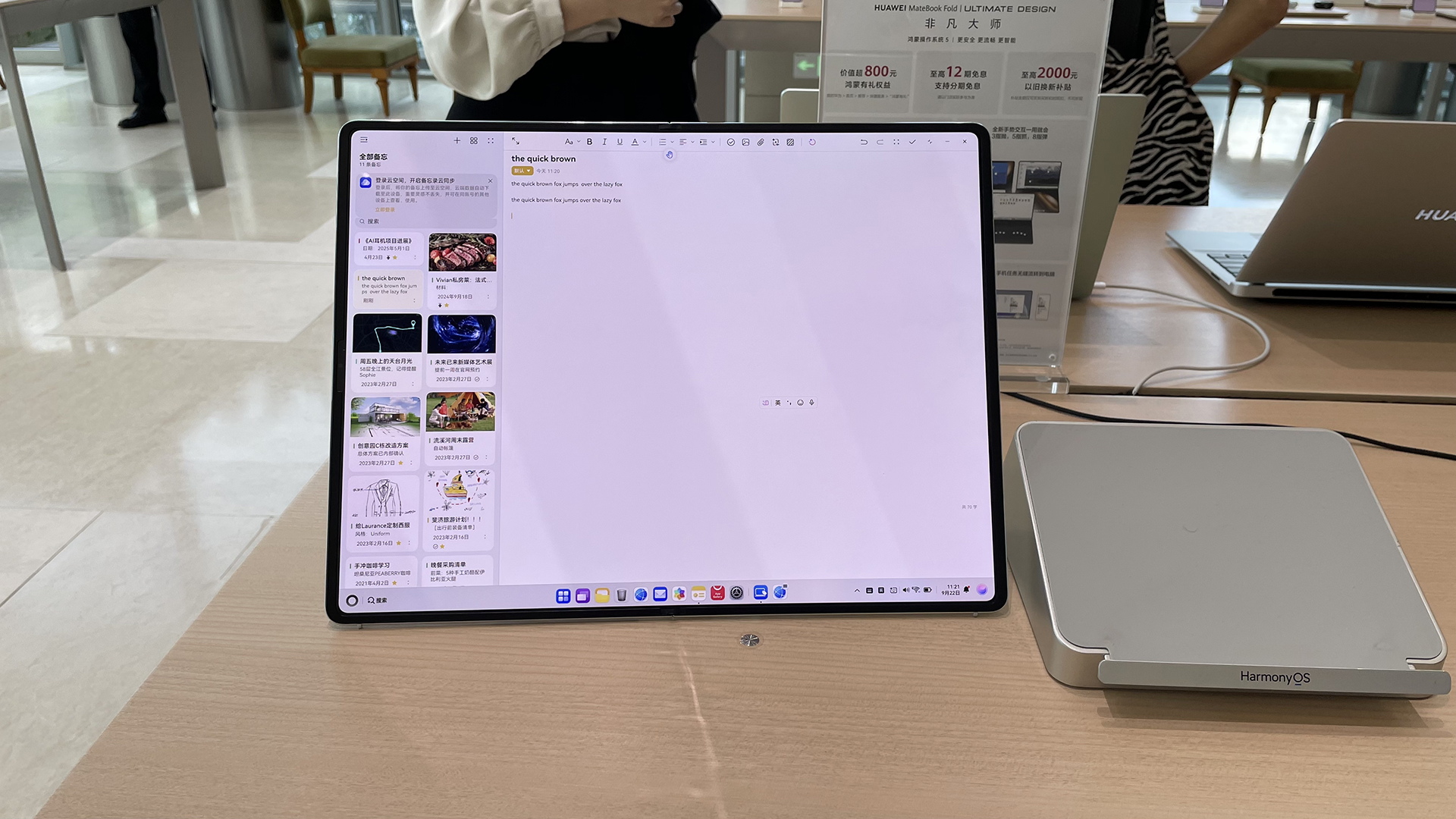 The Huawei MateBook Fold Ultimate Edition is a unique take on what it means to be a laptop – but good luck getting it outside of China
The Huawei MateBook Fold Ultimate Edition is a unique take on what it means to be a laptop – but good luck getting it outside of ChinaReviews This laptop-tablet hybrid offers business travellers a lightweight alternative to the standard fare – but there's a catch
-
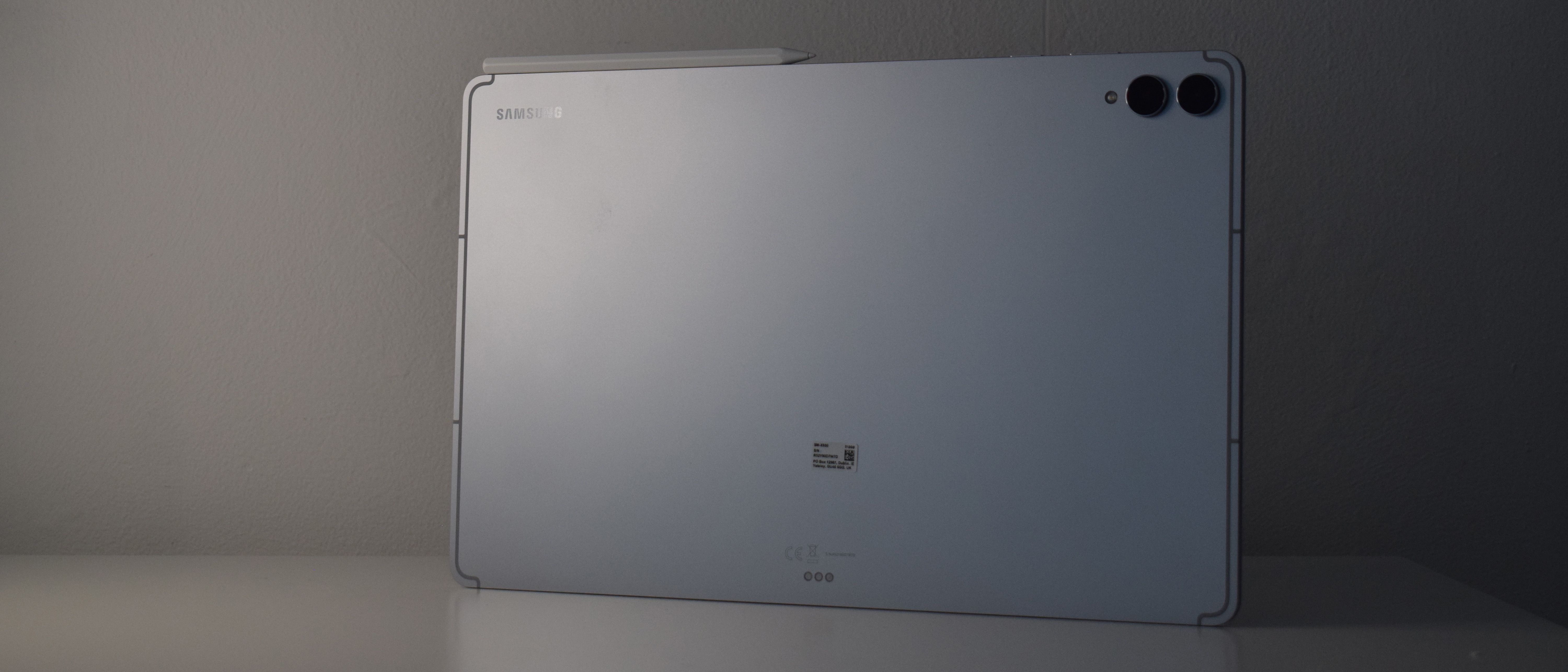 The Samsung Galaxy Tab S11 Ultra has more power, more AI, and much more battery life than its predecessor
The Samsung Galaxy Tab S11 Ultra has more power, more AI, and much more battery life than its predecessorReviews A wonderful slab of technology, packed with AI features, and the battery life is fantastic – very much a tablet worthy of the name, 'Ultra'
-
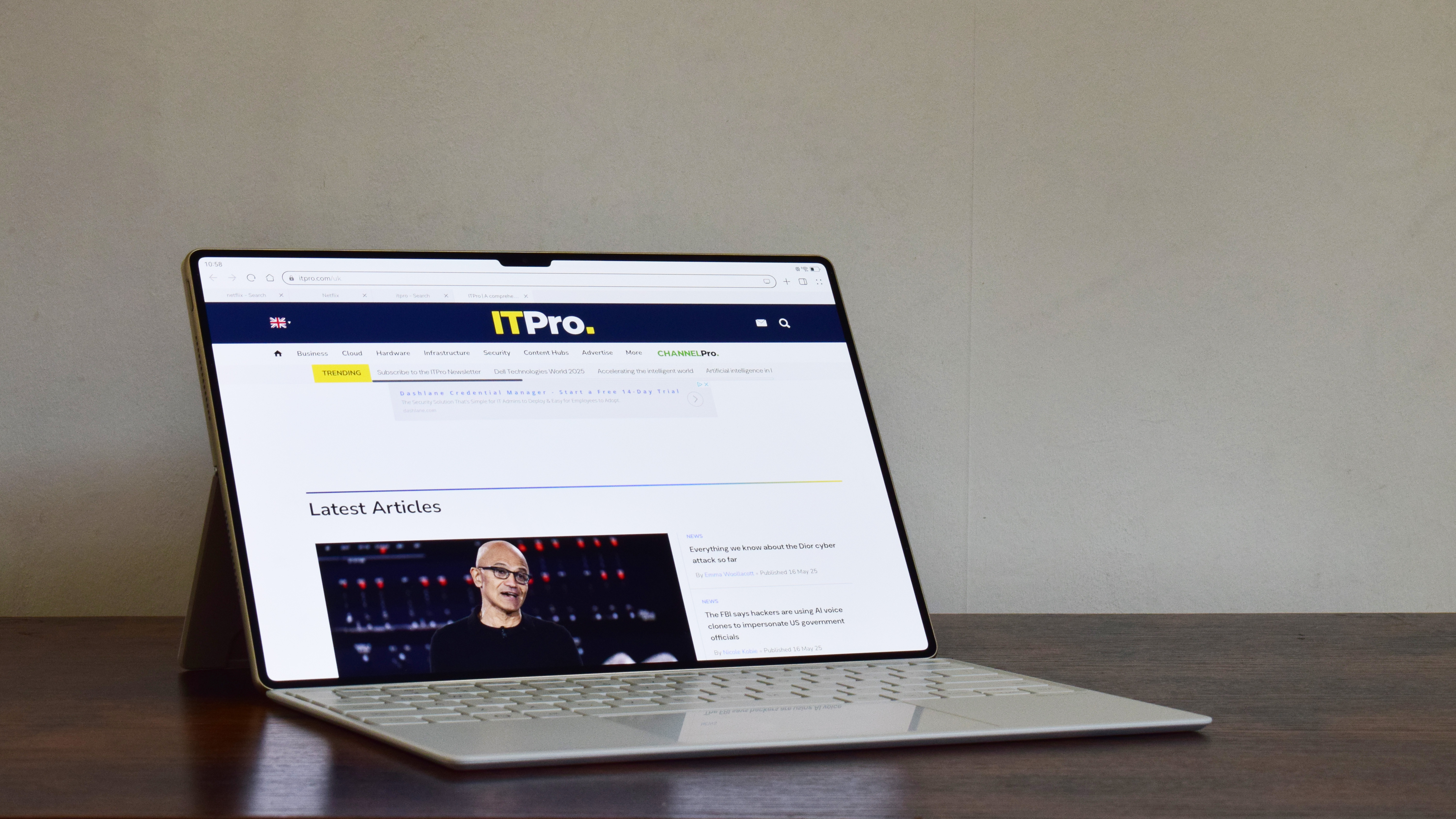 The Huawei MatePad Pro 13.2 PaperMatte edition is an illustration powerhouse – but you'll have to put up with an awkward keyboard and its Google-free OS
The Huawei MatePad Pro 13.2 PaperMatte edition is an illustration powerhouse – but you'll have to put up with an awkward keyboard and its Google-free OSReviews No Google, an awkward keyboard, and an AI-heavy camera are the only issues with Huawei's beautiful MatePad Pro
-
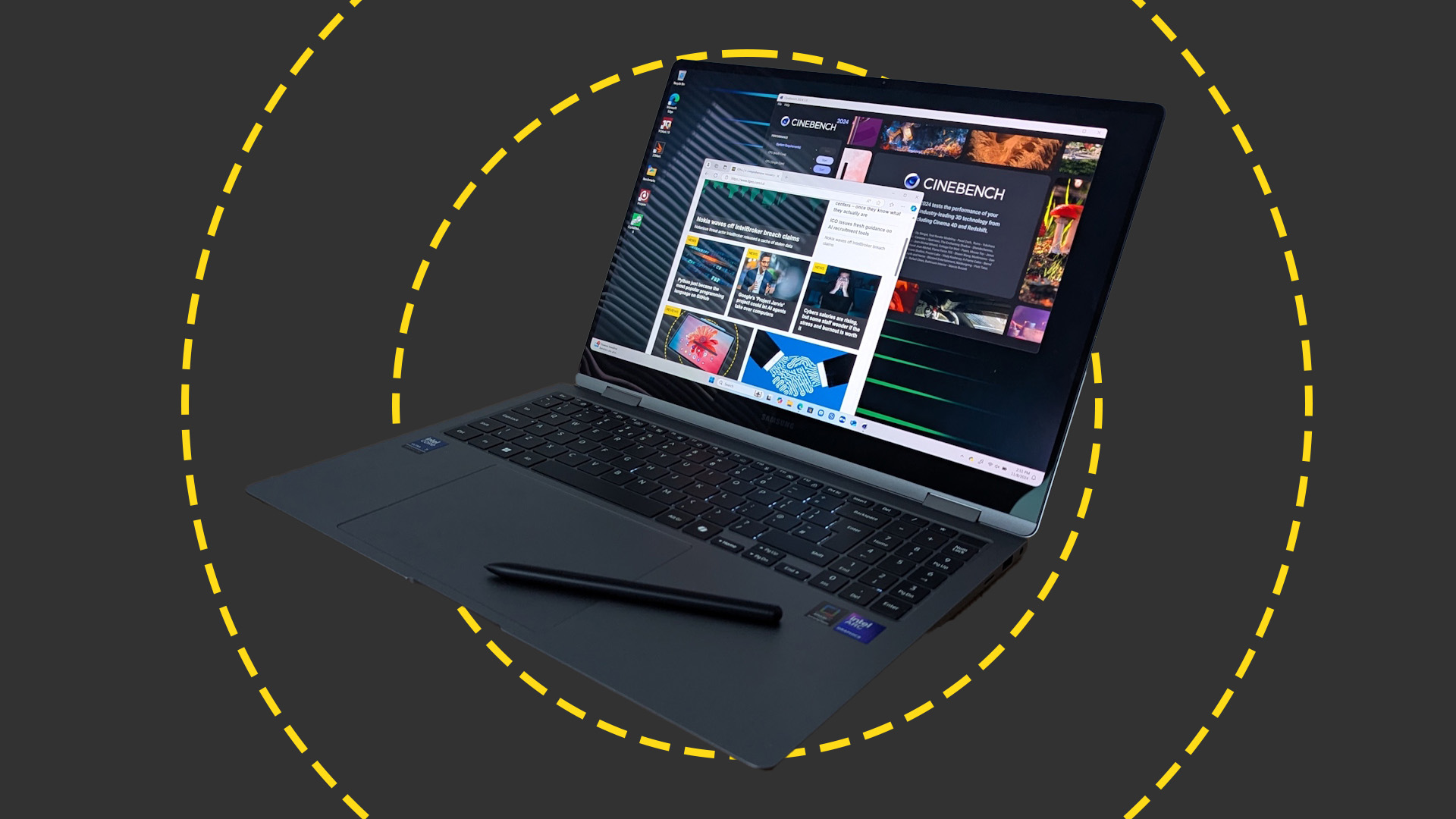 Samsung Galaxy Book 5 Pro 360 review: Almost the perfect big-screen laptop
Samsung Galaxy Book 5 Pro 360 review: Almost the perfect big-screen laptopReviews The Book 5 Pro 360 is a laptop you slowly get accustomed to, rather than one that feels right from the word go.
-
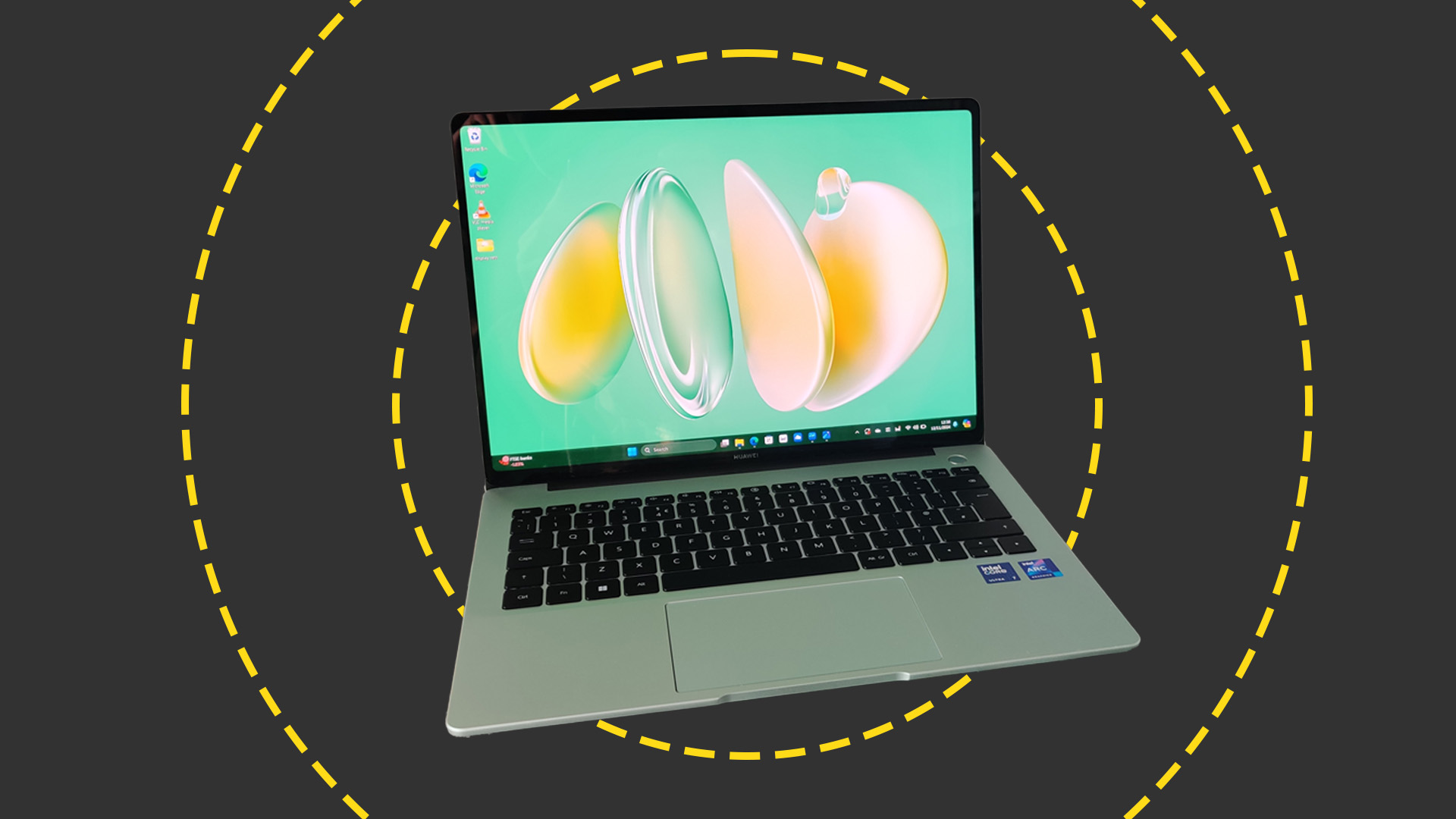 Huawei MateBook 14 (2024) review: A solid all-rounder with a stunning display
Huawei MateBook 14 (2024) review: A solid all-rounder with a stunning displayReviews An attractive, well-rounded device with a spectacular OLED display, but newer ARM-based Windows laptops offer that little bit more
-
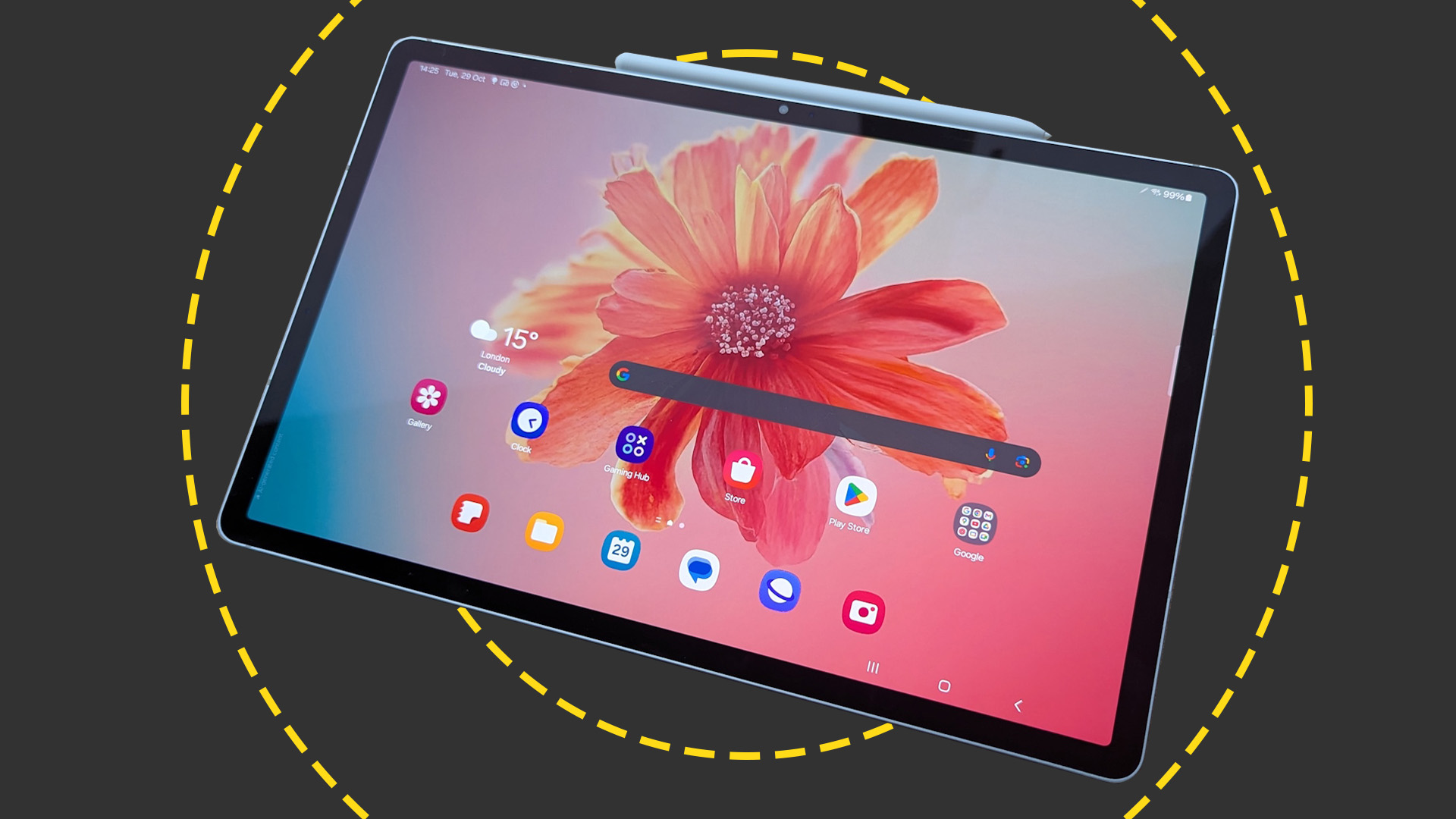 Samsung Galaxy Tab S10+ review: Possibly the best Android tablet for business
Samsung Galaxy Tab S10+ review: Possibly the best Android tablet for businessReviews With good performance, AI features and an exceptional screen, the Tab S10+ is the best Android tablet out there, if not quite the best tablet overall
-
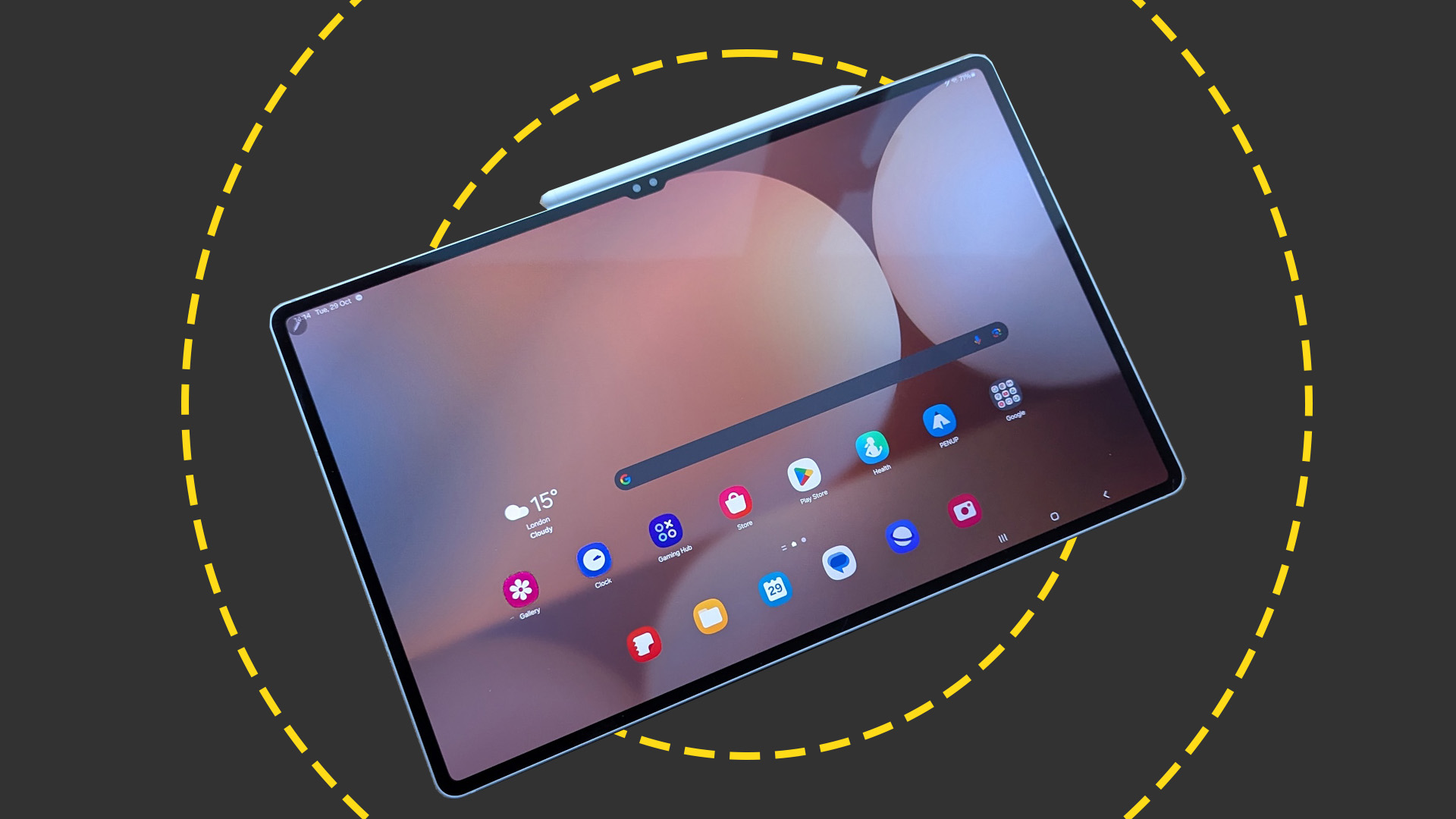 Samsung Galaxy Tab S10 Ultra review: Samsung's big-screen tablet is an AI-powered multitasking monster
Samsung Galaxy Tab S10 Ultra review: Samsung's big-screen tablet is an AI-powered multitasking monsterReviews The sheer size won't be for everyone, but the Tab S10 Ultra has the screen, performance, and multitasking prowess for serious work
-
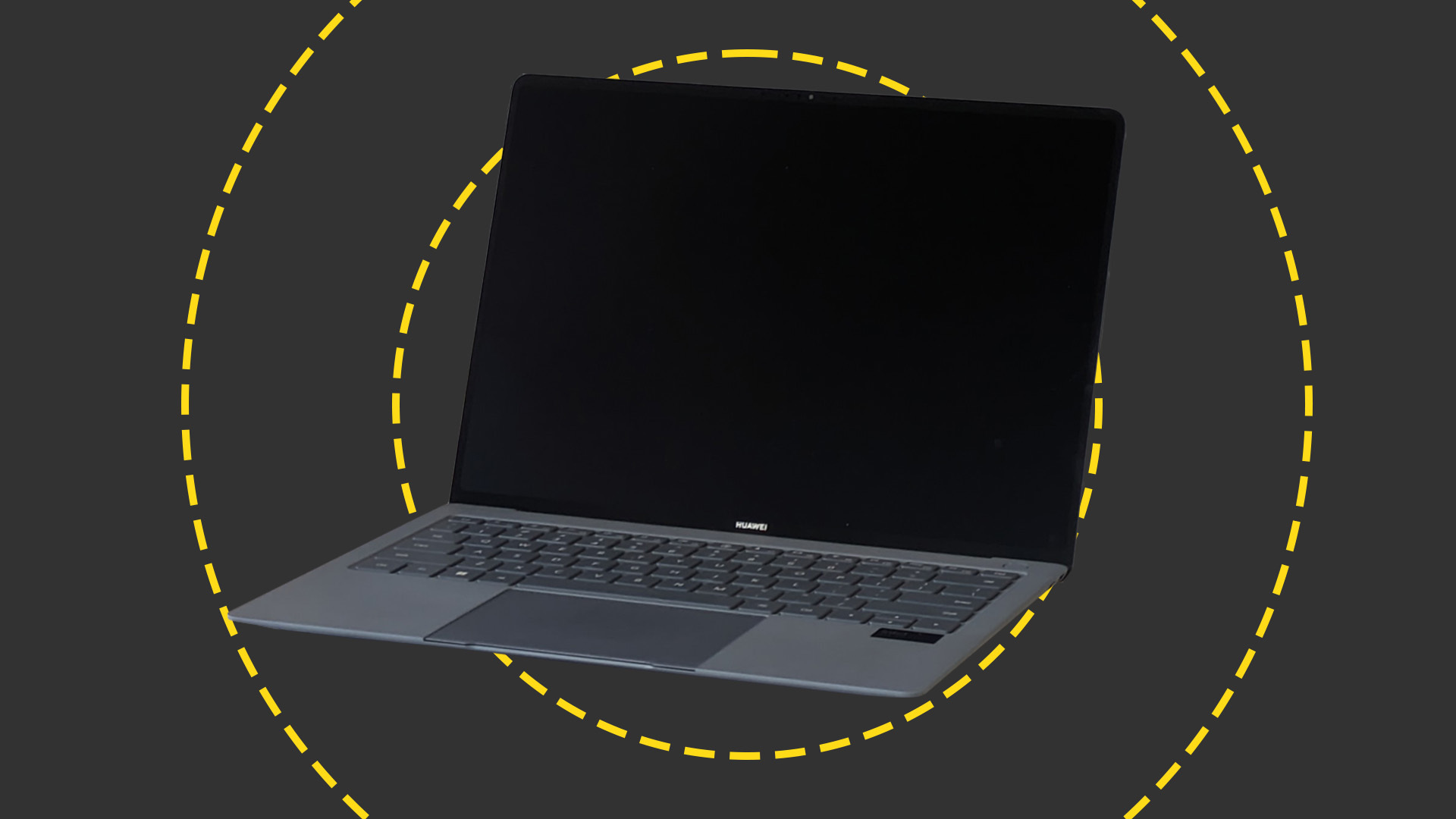 Huawei MateBook X Pro (2024): Executive elegance with the performance to match
Huawei MateBook X Pro (2024): Executive elegance with the performance to matchReviews An elegant Windows machine that can do it all and looks good doing it, with a display that will keep you coming back

